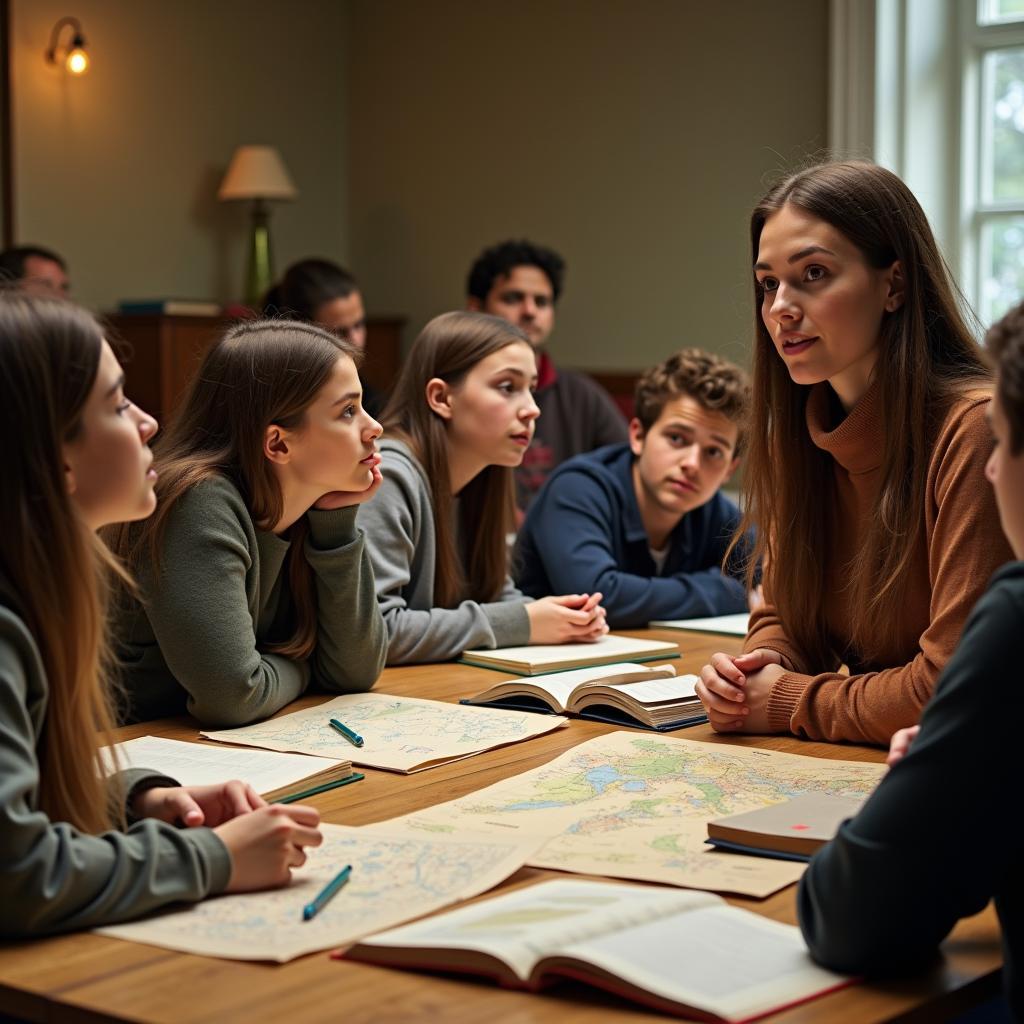The IELTS Speaking test assesses a variety of skills, including fluency, coherence, vocabulary range, grammatical accuracy, and pronunciation. The Speaking test is divided into three parts: Introduction and Interview, Long Turn, and Two-way Discussion. Topics can vary widely, but one common theme is describing a subject you enjoyed studying.
In this guide, we’ll break down how to tackle this type of question effectively. We’ll provide example questions, sample answers, and tips to optimize your responses for a high band score, using keywords naturally and effectively.
Part 1: Introduction and Interview
Common Questions
- What was your favorite subject in school?
- Why did you enjoy studying that subject?
- Did you have a good teacher for this subject?
Example Question and Suggested Answer
Question: What was your favorite subject in school?
Answer:
“My favorite subject in school was Mathematics. I found it intellectually stimulating and enjoyed solving complex problems. The logical reasoning and problem-solving skills I developed were incredibly rewarding.”
Analysis: This answer is concise and covers the topic directly while demonstrating a good range of vocabulary and grammatical structures.
Part 2: Long Turn
Cue Card Example
Describe a subject you enjoyed studying in school. You should say:
- What the subject was
- Who taught you this subject
- What you learned in this subject
- Why you enjoyed it
Suggested Answer
“In high school, I absolutely adored studying History. Our history teacher, Mr. Robinson, had a profound impact on my interest in the subject. He had a unique way of bringing historical events to life with his storytelling techniques. Through his classes, I learned about significant events such as the Industrial Revolution, World Wars, and the Cold War. What I found most fascinating were the intricate details and the cause-and-effect relationships between historical events and their impact on modern society. I enjoyed it because it helped me understand the world better and appreciate different cultures and perspectives.”
Analysis: This answer effectively uses specific examples and vocabulary related to History. It also demonstrates fluency, coherence, and the ability to develop ideas comprehensively.

Additional Questions Examiner Might Ask
- How has this subject influenced your current life or studies?
- Do you think this subject is important for everyone to study? Why or why not?
Suggested Answer for Follow-up Questions
Question: How has this subject influenced your current life or studies?
Answer:
“Studying History has had a lasting impact on my worldview. It has instilled in me a deep appreciation for cultural diversity and has made me more aware of social and political issues. Moreover, the analytical skills I developed have been invaluable in my current studies in Political Science.”
Question: Do you think this subject is important for everyone to study? Why or why not?
Answer:
“Absolutely, I believe History is crucial for everyone to study. It not only helps us understand our past but also enables us to avoid repeating mistakes in the future. Furthermore, it fosters a sense of empathy and interconnectedness among individuals from different backgrounds.”
Part 3: Two-way Discussion
Sample Questions and Answers
Question: Why do you think some students find it hard to be interested in certain subjects?
Answer:
“Many students struggle with particular subjects because they may not see the immediate relevance to their lives or future careers. Moreover, teaching methods can play a pivotal role; engaging and interactive approaches can spark interest, while monotonous and rigid techniques can deter enthusiasm.”
Question: How important is a teacher’s role in making a subject interesting?
Answer:
“A teacher’s role is immensely important in making a subject interesting. A passionate and knowledgeable teacher can inspire students and make even the most challenging subjects captivating. Their enthusiasm can be contagious, and their ability to relate the subject matter to real-life contexts can significantly enhance students’ learning experiences.”
Key Vocabulary and Structures
- Intellectually stimulating: Engaging the intellect in a challenging yet enjoyable manner.
- Problem-solving skills: The ability to find solutions to difficult or complex issues.
- Storytelling techniques: Methods used to narrate events in an engaging manner.
- Analytical skills: The ability to systematically and critically examine information or issues.
- Cultural diversity: The existence of a variety of cultural or ethnic groups within a society.
- Cause-and-effect relationships: Connections between events where one is the result of the other or others.
- Empathy: The ability to understand and share the feelings of others.
- Interconnectedness: The state of being connected with each other.
Tips for IELTS Speaking Success
- Practice Regularly: Regular practice helps in building confidence and improving fluency.
- Expand Your Vocabulary: Learn new words and phrases and practice using them in sentences.
- Use Complex Sentences: Employ a mix of simple, compound, and complex sentences to show grammatical range.
- Stay on Topic: Ensure your responses are relevant and concise.
- Maintain a Natural Tone: Speak naturally and avoid memorized answers, which can sound rehearsed.
For additional resources, you can explore specific techniques on improving your speaking skills here and understand the format of the IELTS Speaking module here.